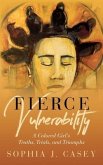The Trials of Shylock is an exploration and reinterpretation of The Merchant of Venice from an acting point of view, designed to create a path for performers and directors to humanely interpret the play and its signature character, Shylock, in a manner freed from the antisemitic imagery long-associated with the part. It is an actor's journey seeking an emotional foundation for a character in performance, rather than the pursuits of a literary historian or critic. Thus, the tortuous inner paths of that search, and the creative license of the actor, are combined with historical analysis and personal memoir to portray Shylock's behaviour convincingly in modern psychological terms. By confronting the emotional impact of Shylock's degradation and personal travails upon his conduct, exposing the cruelty and hypocrisy of his tormentors, and imagining a modern setting effectively illuminating these choices for a contemporary audience, long-held assumptions regarding the values and behaviour of the parties to this drama are reconsidered, altering perception of the play and its meaning. This is accomplished through exploration of a range of historical, emotional, and personal elements essential to the actor's art, with the view to achieving a highly personal and original interpretation of the play and its signature character, Shylock, that will speak to modern audiences. Thus, the acting process, itself, and the research and introspection required to prepare for a role in a fully idiosyncratic way will be considered. It can be argued that MV says more about the attitudes of Elizabethan London toward Jews than those of Venice, an assumption useful in a modern context. Thus, a setting and "given circumstances" are proposed to address these relationships starkly in British-Jewish polarities: namely, British Mandatory Palestine in the years 1945-48, a period fraught with existential conflict pitting Imperial Britain against the Jews. The magnitude of Shylock's rage and mania can then be understood in a larger context of national trauma in the wake of genocide, adding a moving dimension of injured humanity and realism to the character, and eschewing the bigoted view of Shylock - traditionally held - as the embodiment of inveterate evil. In this way, Shylock's violence can be considered in terms of modern psychology, social dynamics, and political struggle, rather than medieval stereotypes and blood-libels. In place of a derisive "comedy" at the expense of "the Jew", the play will become a psychological study of a broken man at the end of his tether. The victim of forces propelling by corrosive increments the most unassuming of men to ferocity beyond their imaginings, exposing the bigotry, class prejudice, and anti-Semitism, which have inflicted these injustices on their victims. Thus, MV can be seen as an indictment of antisemitism, rather than a vehicle for it.
Hinweis: Dieser Artikel kann nur an eine deutsche Lieferadresse ausgeliefert werden.
Hinweis: Dieser Artikel kann nur an eine deutsche Lieferadresse ausgeliefert werden.








